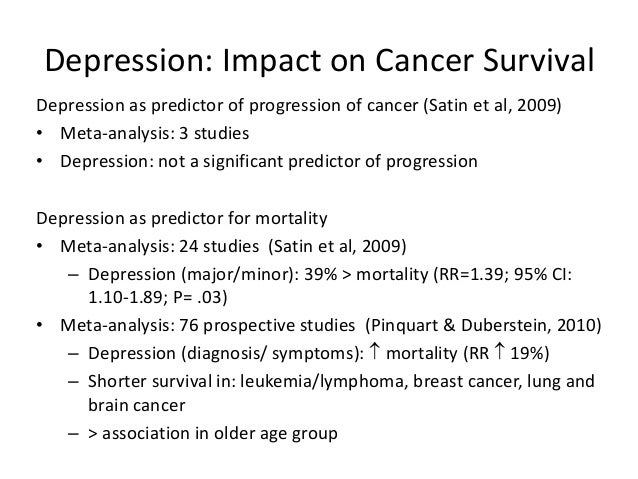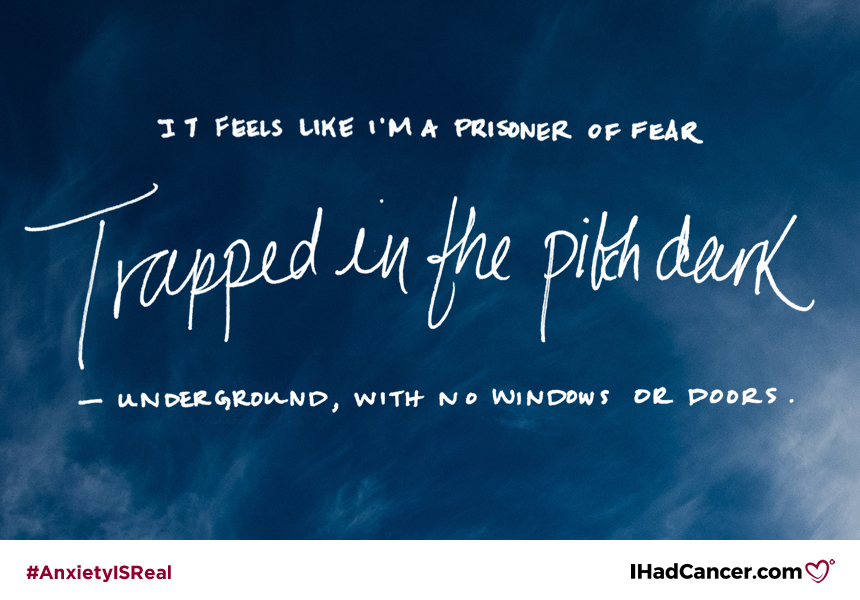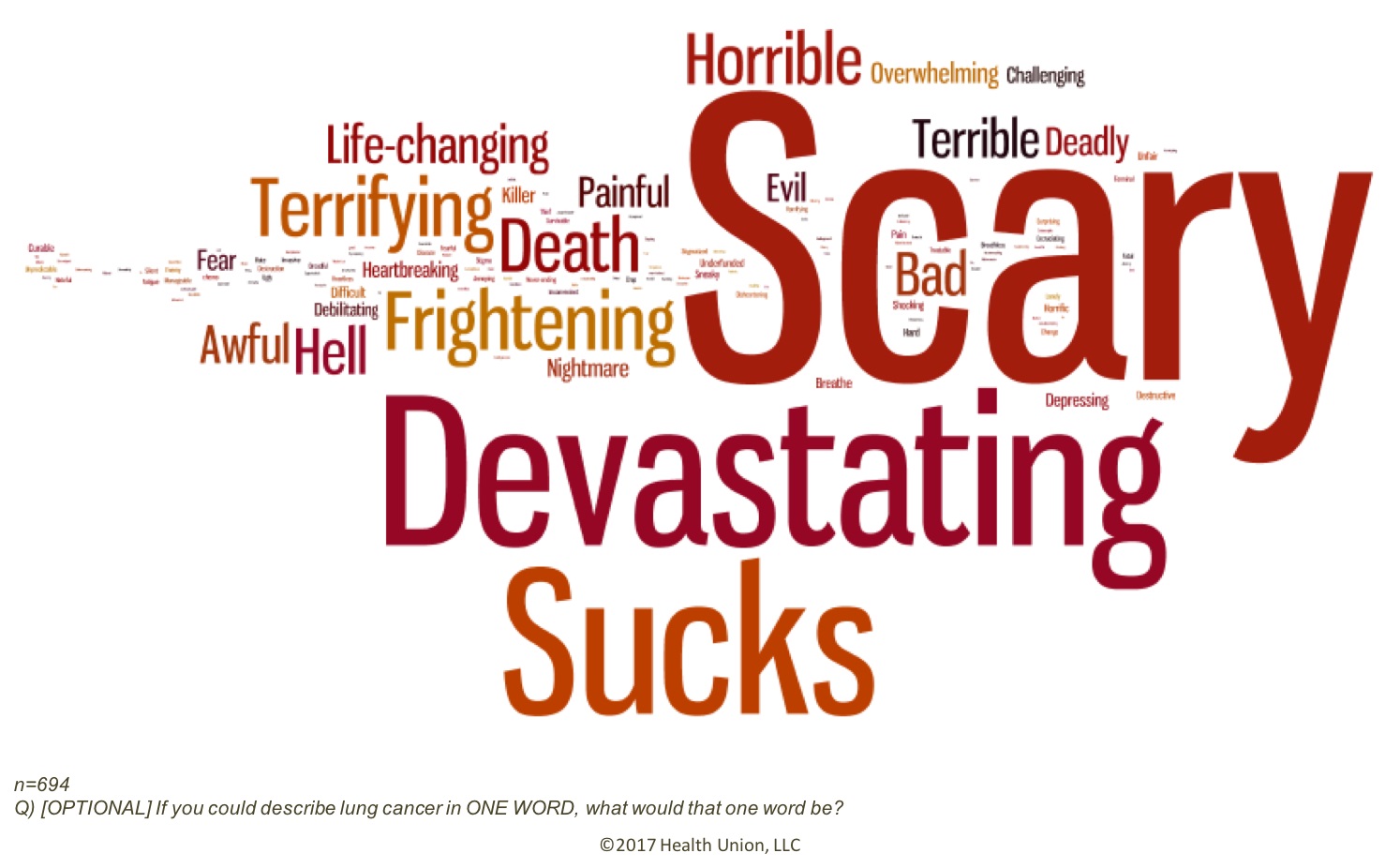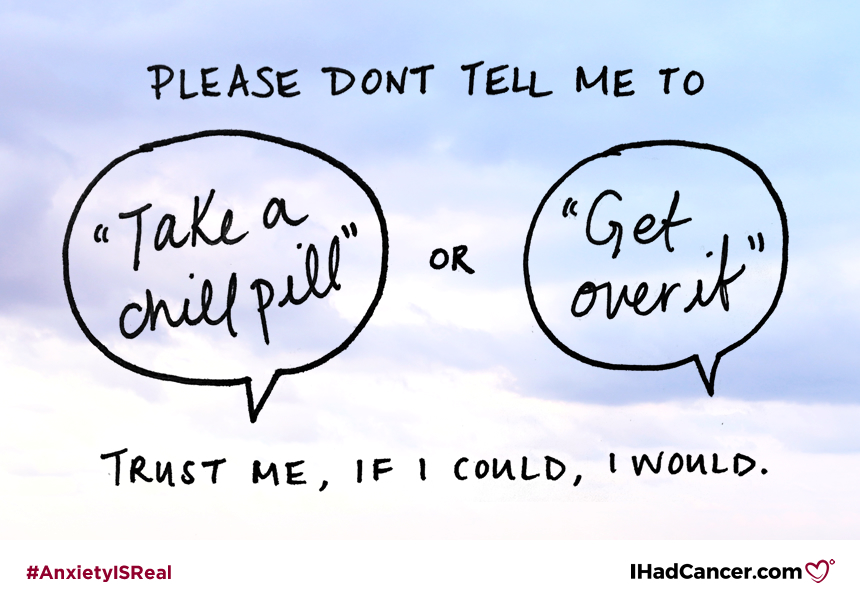 I know that when you are in the thick of things, whether it be chemo or an alternative treatment, it can feel like you are the only person in the entire world whose life is hell. And I describe it that way because of the pain and the needles and the doctor appointments and the blood transfusions and the medication and the looks of pity and the hair loss and the stress and the anxiety and the sadness and the guilt and the big words you need to carry around a dictionary for. But, there are others like you, and like me. Who have been through the pain and guilt and sadness and conquer each day as if to say "screw you" cancer. You are not alone. You are not alone in the pain you feel, or the guilt that you have or the anxiety, even if you feel like you are the only person in the world whose life is " this bad".
I know that when you are in the thick of things, whether it be chemo or an alternative treatment, it can feel like you are the only person in the entire world whose life is hell. And I describe it that way because of the pain and the needles and the doctor appointments and the blood transfusions and the medication and the looks of pity and the hair loss and the stress and the anxiety and the sadness and the guilt and the big words you need to carry around a dictionary for. But, there are others like you, and like me. Who have been through the pain and guilt and sadness and conquer each day as if to say "screw you" cancer. You are not alone. You are not alone in the pain you feel, or the guilt that you have or the anxiety, even if you feel like you are the only person in the world whose life is " this bad". 
Having cancer affects your emotional health. A cancer diagnosis can have a huge impact on most patients, families, and caregivers. Feelings of depression, anxiety, and fear are very common and are normal responses to this life-changing experience. Many things can cause these feelings. Changes in body image can affect self-esteem and confidence. Family and work roles may be altered. People might feel grief at these losses and changes. Physical symptoms such as pain, nausea, or extreme tiredness ( fatigue) also seem more likely to cause emotional distress. People might also fear death, suffering, pain, or all the unknown things that lie ahead. Web Source
Family members and caregivers often have these feelings, too. They may be afraid of losing their loved one. They may also feel angry because someone they love has cancer, frustrated that they “can’t do enough,” or stressed because they have to take on more at home.People with cancer, as well as their friends and family, can feel distress about these things at any time after a cancer diagnosis, even many years after the cancer is treated. As the cancer situation changes, they all must cope with new stressors as well as with the old, and their feelings often change, too.
When to call the cancer care team about the cancer patient with emotional concerns
- Has thoughts or plans of suicide (or of hurting himself or herself)
- Is unable to eat or sleep
- Lacks interest in usual activities for many days
- Is unable to find pleasure in things they’ve enjoyed in the past
- Has emotions that interfere with daily activities and last more than a few days
- Is confused
- Has trouble breathing
- Is sweating more than usual
- Is very restless
- Has new or unusual symptoms that cause concern
Symptoms of clinical depression
- Ongoing sad, hopeless, or “empty” mood for most of the day
- Loss of interest or pleasure in almost all activities most of the time
- Major weight loss (when not dieting) or weight gain
- Being slowed down or restless and agitated almost every day, enough for others to notice
- Extreme tiredness (fatigue) or loss of energy
- Trouble sleeping with early waking, sleeping too much, or not being able to sleep
- Trouble focusing thoughts, remembering, or making decisions
- Feeling guilty, worthless, or helpless
- Frequent thoughts of death or suicide (not just fear of death), suicide plans or attempts
- Encourage the depressed person to continue treatment for depression until symptoms improve, or to talk to the doctor about different treatment if there’s no improvement after 2 or 3 weeks.
- Promote physical activity, especially mild exercise such as daily walks.
- Help make appointments for mental health treatment, if needed.
- Provide transportation for treatment, if needed.
- Engage the person in conversation and activities they enjoy.
- Remember that it’s OK to feel sad and grieve over the losses that cancer has brought to their lives, and to yours.
- Realize that being pessimistic and thinking everything is hopeless are symptoms of depression and should get better with treatment.
- Reassure the person that with time and treatment, he or she will start to feel better – and although changes to the treatment plan are sometimes needed, it’s important to be patient.

- Keep feelings inside.
- Force someone to talk when they’re not ready.
- Blame yourself or another person for feeling depressed
- Tell a person to cheer up if they seem depressed.
- Try to reason with a person whose depression appears severe. Instead, talk with the doctor about medicines and other kinds of help.

- Anxious facial expressions
- Uncontrolled worry
- Trouble solving problems and focusing thoughts
- Muscle tension (the person may also look tense or tight)
- Trembling or shaking
- Restlessness, may feel keyed up or on edge
- Dry mouth
- Irritability or angry outbursts (grouchy or short-tempered)
- Encourage, but do not force, each other to talk.
- Share feelings and fears that you or the anxious person may be having.
- Listen carefully to each other’s feelings. Offer support, but don’t deny or discount feelings.
- Remember that it’s OK to feel sad and frustrated.
- Get help through counseling and/or support groups.
- Use meditation, prayer, or other types of spiritual support if it helps.
- Try deep breathing and relaxation exercises. Close your eyes, breathe deeply, focus on each body part and relax it, start with your toes and work up to your head. When relaxed try to think of a pleasant place such as a beach in the morning or a sunny field on a spring day.
- Talk with a doctor about using anti-anxiety or anti-depressant medicines.
- Keep feelings inside.
- Force someone to talk if they’re not ready to.
- Blame yourself or another person for feeling fearful or anxious.
- Try to reason with a person whose fears and anxieties are severe; talk with the doctor about medicines and other kinds of help.
Symptoms of a panic attack

- Shortness of breath or a feeling of being smothered*
- Racing heart*
- Feeling dizzy, unsteady, lightheaded, or faint*
- Chest pain or discomfort*
- Feeling as if they’re choking*
- Trembling or shaking
- Sweating
- Fear of losing control or “going crazy”
- An urge to escape
- Numbness or tingling sensations
- Feeling “unreal” or “detached” from themselves
- Chills (shaking or shivering) or hot flashes (may involve sweating or facial reddening)
- Check with their doctor to be sure that the symptoms are caused by panic and not another medical problem.
- Stay calm and speak softly during a panic attack.
- Sit with the person during panic attacks until he or she is feeling better.
- Call for help if needed.
- After the panic attack is over, encourage the person to get treatment for the panic attacks.
- Provide transportation to treatment if needed. The person may be afraid that a panic attack will happen while driving.
- The ideas listed under “Things to do to help” in the section “Anxiety, fear, and the person with cancer” may also be helpful for someone having a panic attack.

- Minimize or make light of the person’s terror or fear.
- Judge the person for feeling scared and acting strangely.
- Try to talk the person out of their fear or other feelings.
- Hesitate to call the doctor if you have questions about what’s happening.
Patients with more social support tend to feel less anxious and depressed and report a better quality of life. People with cancer find it encouraging to have others who listen and help with the practical aspects of dealing with cancer. Asking family members and loved ones for this kind of support may help reduce the patient’s distress and the distress of those who care about him or her. Some people might put up a false front, or put on a “happy face,” even if they don’t really feel that way. This may be their way of trying to protect the people they love, and possibly themselves, from painful feelings. Some people believe even that a person with cancer can improve their outcome by being cheerful and happy all the time – but this isn’t true.
Studies of coping styles and survival or recurrence (cancer coming back after treatment) show that being cheerful has little to no effect on cancer. Still, some people with cancer feel guilty for being sad or fearful, and may try to act happy and “be positive” even when it’s painful to them. If this might be happening, gently tell the person that you’re willing to listen to their feelings, no matter what they are. The message may be something like, “I care about you, and I’m here for you whether you are happy, afraid, angry, or sad.”
Being able to talk with the cancer care team about concerns such as fears, pain, and other issues may help the patient feel more comfortable. Someone on the the team can answer questions and talk about any concerns. They can also refer the patient to a mental health professional if needed. Depression, anxiety, and other emotional problems can nearly always be helped with a combination of medicines, support groups, or psychotherapy. But first, a person must recognize that they need help dealing with their emotions and responses to the major changes that cancer brings to their lives. In the confusion and stress that come after a cancer diagnosis, the emotional problems of people with cancer and those around them can often become fairly serious before they’re recognized. While going through a wide range of emotions is a normal part of coping with cancer, some things should not be ignored. If the patient or someone close to them has any of these problems, please get help right away: Cancer changes people’s lives. The emotional stress it causes can be overwhelming, but no one has to manage it alone. The cancer care team may seem focused on physical health, but they care about emotional health, too. Keep them involved and aware. Learn about and use the resources available. Coping with cancer is stressful, but no one has to do it alone. It’s normal to grieve over the changes that cancer brings to a person’s life. The future, which may have seemed so sure before, now becomes uncertain. Some dreams and plans may be lost forever. But if a person has been sad for a long time or is having trouble carrying out day-to-day activities, that person may have clinical depression. In fact, up to 1 in 4 people with cancer have clinical depression.


Clinical depression causes great distress, impairs functioning, and might even make the person with cancer less able to follow their cancer treatment plan. The good news is that clinical depression can be treated. If someone you know has symptoms of clinical depression, encourage them to get help. There are many ways to treat clinical depression including medicines, counseling, or a combination of both. Treatments can reduce suffering and improve quality of life. Some of these symptoms, such as weight changes, fatigue, or even forgetfulness can be caused by the cancer itself and its treatment. But if 5 or more of these symptoms happen nearly every day for 2 weeks or more, or are severe enough to interfere with normal activities, it might be depression. If this is the case, encourage the person to be checked for clinical depression by a qualified health or mental health professional. If the person tries to hurt him- or herself, or has a plan to do so, get help right away.
If you suspect you may be depressed, see a doctor. Make time to get the help and support you need.
At different times during treatment and recovery, people with cancer may be fearful and anxious. Finding out that they have cancer or that the cancer has come back causes the most anxiety and fear. Fear of treatment, doctor visits, and tests might also cause apprehension (the feeling that something bad is going to happen). It’s normal to feel afraid when you’re sick. People may be afraid of uncontrolled pain, dying, or what happens after death, including what might happen to loved ones. And, again, these same feelings may be experienced by family members and friends. Signs and symptoms of fear and anxiety include: If a person has these symptoms most of the day, nearly every day, and they are interfering with his or her life, a mental health evaluation could helpful. Keep in mind that sometimes, despite having all the symptoms, a person may deny having these feelings. But if they’re willing to admit that they feel distressed or uncomfortable, therapy can often help.Panic attacks can be an alarming symptom of anxiety. Panic attacks happen very suddenly and often reach their worst within about 10 minutes. The person may seem fine between attacks, but is usually very afraid that they will happen again.
*If a person is having any of the first 5 symptoms (marked with *), it can mean an urgent or life-threatening condition. Call 911 or the doctor right away if someone unexpectedly has any of these. These symptoms can be signs of other, more serious problems such as shock, heart attack, blood chemistry imbalance, collapsed lung, allergic reaction, or others. It’s not safe to assume that they are panic-related until diagnosed by a doctor.







No comments:
Post a Comment